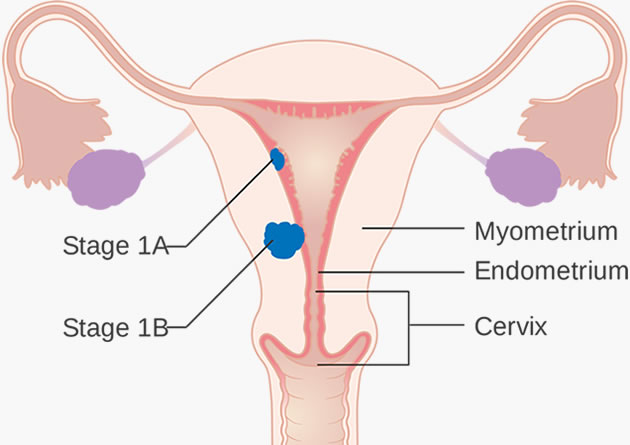Gynaecology
- Home
- Women's Health
- Gynaecology
- Gynaecological Cancers
- Women's Cancer - Uterine Cancer

Women's Cancer - Uterine Cancer
The uterus is a hollow, muscular organ where a fetus grows. Uterine cancer is one type of womens cancer and can start in different parts of the uterus. Most uterine cancers start in the endometrium (the inner lining of the uterus). This is called endometrial cancer. Most endometrial cancers are adenocarcinomas (cancers that begin in cells that make mucus and other fluids).
Because endometrial cancer is often discovered at an early stage of its development in the body, most women are cured. Even if the disease is not discovered until after it has advanced, treatment is still possible but the likelihood of a long-term cure is lower.
Uterine sarcoma is an uncommon form of uterine cancer that forms in the muscle and tissue that support the uterus.
Obesity, certain inherited conditions, and taking estrogen alone (without progesterone) can increase the risk of endometrial cancer. Radiation therapy to the pelvis can increase the risk of uterine sarcoma. Taking tamoxifen for breast cancer can increase the risk of both endometrial cancer and uterine sarcoma.
The most common sign of endometrial cancer is unusual vaginal bleeding. Endometrial cancer can usually be cured. Uterine sarcoma is harder to cure.
Symptoms
If you are concerned about symptoms it is important that you see a gynaecologist (specialist doctor in women’s health). It is more likely that your symptoms are not related to cancer but it is important to have any symptoms checked.
Symptoms of endometrial cancer include:
- bleeding after you have been through menopause (once your periods have stopped for twelve months)
- unusually heavy periods and bleeding inbetween your periods
- an unusual fluid or discharge from your vagina that is watery, bloody or smelly
- pain in your belly or abdomen
- trouble going to the toilet to pass urine (wee) or pain when you do go.
See a doctor if you have any of these symptoms and they don't go away and/or are unusual for you.
Treatment
Treatment options include surgery, radiation therapy, and chemotherapy.
Surgery to remove the uterus (hysterectomy) may be done in women with early stage 1 cancer. The doctor may also recommend removing the tubes and ovaries.
Surgery combined with radiation therapy is another treatment option. It is often used for women with
- Stage 1 disease that has a high chance of returning, has spread to the lymph nodes, or is a grade 2 or 3.
- Stage 2 disease.
Chemotherapy or hormonal therapy may be considered in some cases, most often for those with stage 3 and 4 disease.
Related readings:
Clinic Hours
-
Opening Hours
-
Mon/Wed/Fri
9.00am - 5.00pm
-
Tues/Thur
Please call for apointment
-
Sat
9.00am - 1.00pm
-
Sun
Offday
-
Mon/Wed/Fri








